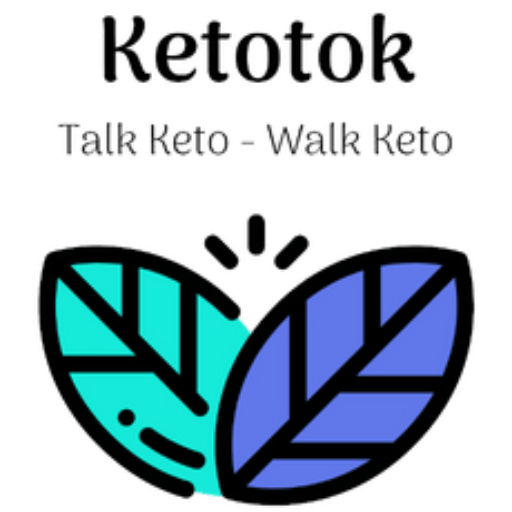The keto diet is intricately complex and manages dietary restriction, which takes care of the net carbs going into your body. Dieticians call the keto diet an adjustment, which decreases net carbs and increases fat in your diet. As carbohydrate intake is decreased to only 10% of daily calories coming from carbs, keto allows you to burn fat deposits to make up for lost calories. However, the keto diet also increases protein intake, in order to meet nutritional requirements.
To meet these requirements for the keto diet, beans are a food group that can be effectively used and involved in the keto diet. There are various types of beans that are a very healthy source of protein, although their carb content remains high. Therefore, in this article, we will be taking you along to analyze types of beans in the keto diet and how to avoid them.
Beans Are Very High in Carbs and Not Keto-Friendly
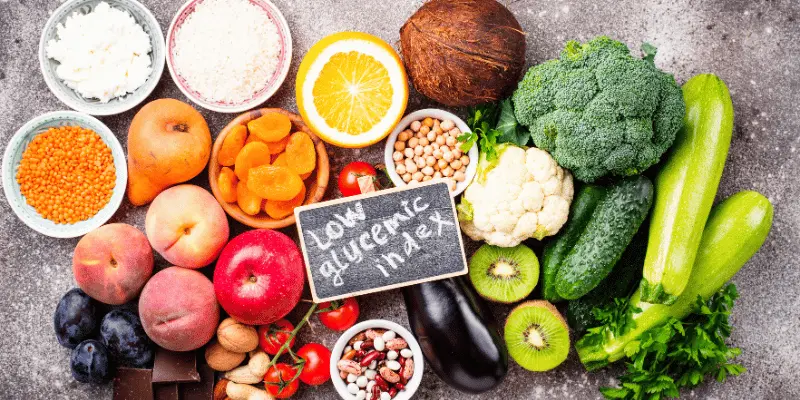
Including beans in your diet is a healthy decision to make, because they can decrease the risk of reaching chronic levels of obesity and alleviating cardiovascular issues. However, if you follow a keto diet, then eating beans is not the best choice to cut down on carbs. This is because, beans are packed with complex carbs and fiber, making them too high carb for keto diets.
Cooked beans are great for your digestive tract as well, and the keto diet can lower your cholesterol and blood sugar as well. If these are your goals, then the below table will help you choose what type of bean to eat and what to avoid
| Type of Bean | Serving Size | Total Carbs | Fibre | Net Carbs |
| Black beans | 1 cup | 60g | 19g | 41g |
| Pinto beans | 1 cup | 64g | 19g | 45g |
| Kidney beans | 1 cup | 40g | 16g | 24g |
As seen from the graph, almost all the beans are relatively higher in carbs. Most popular types of beans are also included, which are known for being high in protein and therefore readily used by people who are vegan or vegetarian as a protein source. Either canned beans or beans that are cooked at home, cooked beans provide a great source of protein, but for the keto diet, they are off the limits.
Read Also: Keto Bean Substitutes
Is A Low Carb Diet Healthy?
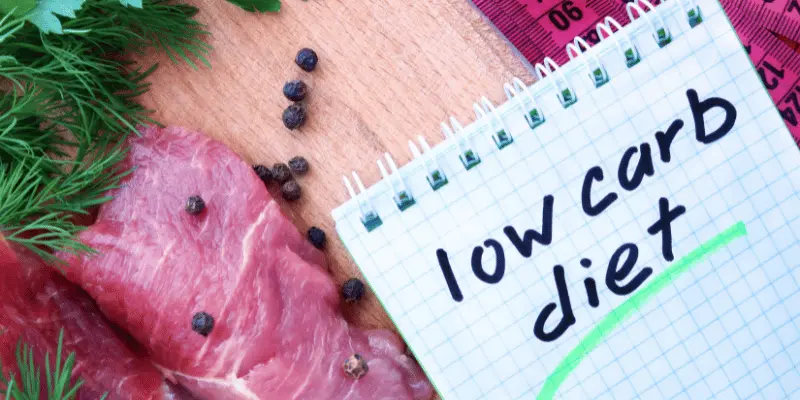
For healthy savvy individuals, who are looking to make the correct health decisions, a low-carb diet is a healthy option. In a low-carb diet, researchers have found that lowered levels of blood sugar can help you lose 1.5 pounds of body weight per week. As calories being ingested are much fewer per week, the carbs that are cut from your diet also lower sugar levels and result in low glycemic index. Therefore, consequences on health are also that risk factors of diabetes and cardiovascular disorders also decline, as glucose and cholesterol levels decrease. Overall, a low-carb diet can therefore be called the healthier option.
However, much like any other diet, the keto diet or low-carb diets also have certain limitations. Upwards of 12 to 24 months, research articles have shown no significant impacts of the keto diet on body weight loss.
Similarly, it is the mindset of following a dietary regime that makes it healthy or unhealthy. If you are making unhealthy decisions, while being on the keto diet, then it is likely that such a healthy dietary regimen can also become unhealthy for you. Stress, anxiety, and declining mental health are all part of this
Nutritional Benefits Beans Provide
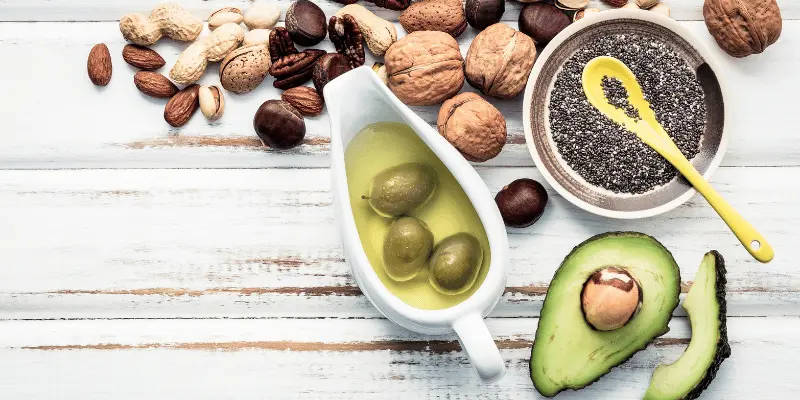
Now getting back to beans, keto can be used to lose weight, but the ketogenic diet cannot be based on high bean intake because of their carb content. However, this does not mean that beans are unhealthy.
On the contrary, beans contain vitamins, minerals, and plant-based protein, but only the carb content is very high. Beans also are high in fiber, only grams of net carbs make them very high to follow the keto restrictions. Beans are also considered a good source of protein, and as a plant-based protein source they are great as a vegetarian and vegan-friendly option
Therefore, if your total carbs for the day are not meeting the limit, then beans are a great snack to make up your total daily carbs.
Read Also: Are Sprouts Allowed In The Keto Diet?
Tips to Reduce Carb Intake from Beans
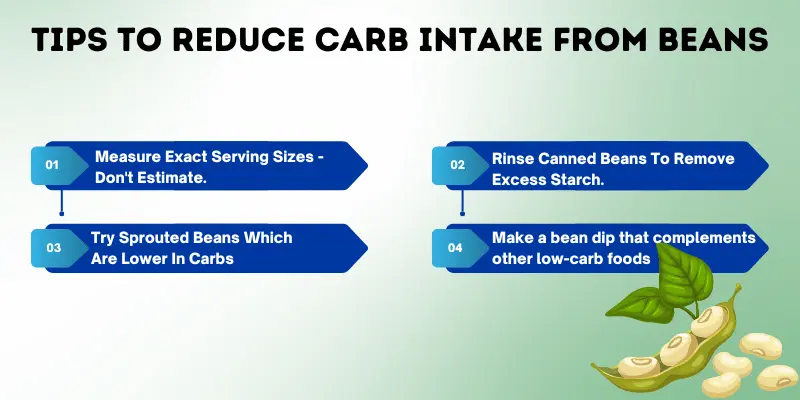
Given the nutritional benefits of beans, good decisions can be made to eat beans. But, if you are following the keto diet, then take these additional precautions to make sure that carbs, protein and fibre contents are adequate.
- Measure Exact Serving Sizes – Don’t Estimate.
Keto is highly intricate, so use beans that are exactly measured and their carb content is exactly known
- Rinse Canned Beans To Remove Excess Starch.
Starch from beans can contain carbohydrates and starch from canned beans take away the nutritional value, so remove it before eating
- Try Sprouted Beans Which Are Lower In Carbs
All beans are high in protein and fiber, but sprouted beans are also relatively lower in carbs
- Make a bean dip that complements other low-carb foods
Servings of beans can be decreased by using them in dips and eating them with vegetables
Keto-Friendly Bean Substitutes
There are also substitutes for beans that are low in carbs, comparatively. Vitamins and minerals in beans are not low, so they provide adequate nutritional requirements and are not too high in carbs as well. Some of these alternatives are:
- Soybeans/Edamame – 16g net carbs per cup
- Lentils – 16g Net Carbs Per Cup
- Low-carb veggies Like Cauliflower Or Cabbage
The servings of beans, of course, have to be intricately planned and measured to the lowest value. This is because alternatives to beans are still relatively higher in carbohydrates. They are rich in protein but have even more carbs to be completely friendly to a keto diet.
10. Beans and Legumes
For foods that cannot be eaten on a keto diet, beans, and legumes comes atop the list. They are high in fiber, making them friendly to your digestive cycle, and are vegan-friendly protein sources. However, USDA data shows that prepared black beans, only 13g can contain carbs as high as 7g.
For a low-carb diet, eating such high sources of carbs from beans can put you off during other meal times. Legumes and beans are low in cholesterol and high in carbs, which is the literal antithesis of the keto diet, which is high in cholesterol and low in carbs.
However, if you really love beans and legumes, and cannot see yourself living without them, then eat on keto but in correct proportions. You can assign days on which to eat beans and legumes so that on other days, you are able to meet carb requirements
4 Keto-Friendly Bean Options
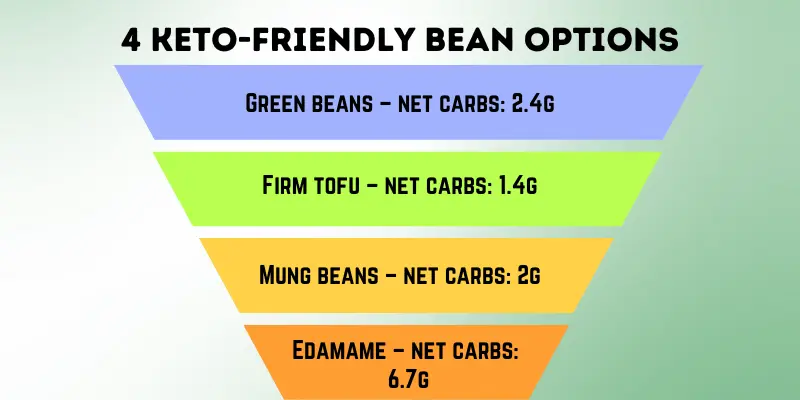
Ketosis is an intense physical state of your body, where low carbs are working to generate weight loss. It requires excluding many seemingly healthy foods that are high in carbs and can take you out of ketosis. This includes beans as well. However, if you are unable to let go, then beans that can maintain ketosis are:
- Green beans – net carbs: 2.4g
- Firm tofu – net carbs: 1.4g
- Mung beans – net carbs: 2g
- Edamame – net carbs: 6.7g
The grams of protein remain high like in other beans, but complex carbohydrates are also much lower. These beans or products of beans can therefore be easily used for ketosis.
Plant-Based Protein Alternatives to Beans
Eating beans in keto can also have practical reasons for people. As they are vegan or vegetarian, then beans provide a great source of protein. The keto diet is also based on high protein intake, therefore beans are a staple. However, to maintain ketosis, normal beans like lima beans and black beans cannot be eaten.
Instead, plant-based alternatives are also present in proteins that are low in carbohydrate content. Food high in protein by low in carbohydrates are the end goal for this list and provide a good source of following both dietary restrictions effectively. These substitutes for beans are:
- Tofu – net protein 8g
- Grain of Amaranth – net protein 9g
- Buckwheat – net protein 6g
- Spirulina algae – net protein 4g
Although a few of these alternatives are highly exotic and hard to find, if you have multiple dietary restrictions of veganism as well as keto, then these adjustments have to be made. A bean-heavy diet can simply not be followed, as it can take your body out of ketosis.
Read Also: Keto Substitute for Chickpeas
Should You Avoid Beans On A Keto Diet?
Yes, a simple word answer is simply yes. If you can, then avoid beans on keto. Beans are too high carb for keto, which takes your body out of ketosis and the purpose of the whole diet is lost. Beans are generally a great source of protein, but the benefits of beans are lost on a keto diet. Beans are good for other dietary restrictions, but there are a plethora of food substances that can be used in place of beans to maintain ketosis.
However, if you have to under any circumstances eat beans. Then there are certain techniques through which beans can be incorporated into a keto diet. You can focus on the kind of beans to eat that are also high in protein but low in carbs. You must limit bean intake and focus on low-carb vegetables. While eating beans is good alternative to other foods, it does not have numerous health benefits when used in a keto diet.
Making Beans a Part of Your Diet
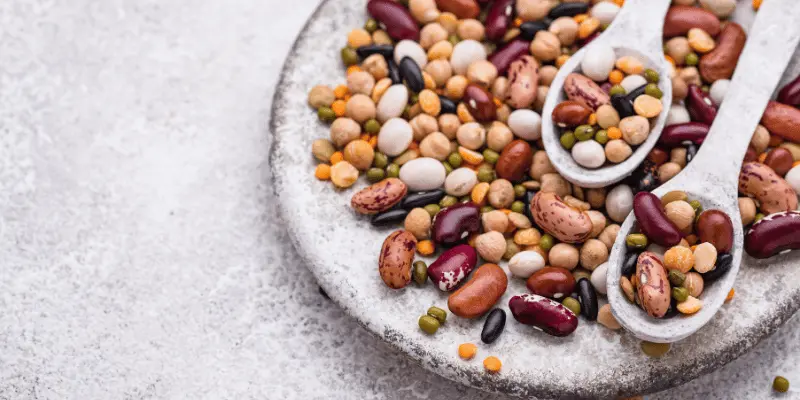
Under normal circumstances, common types of beans must be readily made part of your daily diet. The net carb content is comparatively higher, but beans also contain fiber, and low cholesterol and are great protein sources. Therefore, even though it is fairly high in carbs, other health benefits can positively impact digestion, blood sugar, and blood pressure and benefit patients with cardiovascular disorders.
If you were to substitute the amount of beans for rice or legumes, then health benefits are numerous. Beans offer nutritional value of protein and fiber, beans help digestion, they are a source of plant-based protein and a cup of cooked green beans can also make you feel full.
The Bottom Line on Beans and Net Carbs
Beans contain beneficial nutrients but are too high in carbs for keto diets. Stick to low-carb beans as substitutes, in case you have to eat beans under any and all circumstances. In this case, you can even count beans that are being eaten, so as not to overreach the limit of daily carb intake. The purpose of doing so is not to be petty, but increased carb intake can take you out of ketosis.
Beans are also n great protein alternative to animal protein sources, therefore vegans and vegetarians are highly reliant on beans. However, for a keto diet, keto-friendly bean options have to be explored and bean intake must be decreased.
FAQ’s:
Q. Which Beans Are Best For Low Carb Diet?
A. Green beans are best for a low-carb diet. They can be freshly eaten or cooked, canned, or boiled on the stove. They are a healthy alternative to other beans that are higher in carb content, but green beans are comparatively lower in carbohydrates. These beans have higher fiber and lower cholesterol as well, offering all the advantages of black beans.
Q. Are Beans Good For Weight Loss?
A. Yes, beans are great for weight loss. They are high in protein and low in fat, which is why dietary restrictions that follow a low-fat diet can be followed to conduct major weight loss. Although they don’t work effectively for the keto diet, it does not mean that beans cause weight gain. The reality, however, is on the contrary
Q. Are Beans A Protein Or Carb?
A. Beans are a natural ingredient that contains both proteins and carbs. They have both proteins and carbs in higher volumes, making them the perfect snack
Q. Can Beans Cause Digestive Discomfort?
A. Not at all. Beans have higher fiber content, so they are perfect for making the digestive tract much better. However, much like any other food substance, too much of anything is bad for you. Therefore, eating too much beans can cause constipation as well.
Q. Are Carbs in Beans Bad for You
A. No, carbs are not bad for you, period. Complex carbohydrates are actually a very important source of energy, which can be used to decrease blood sugar and metabolize other foods by helping with the process of fermentation inside the body. Carbohydrates also make up muscle mass, so they are actually detrimental to the body. This is why, carbs in beans or from any other food source are not bad for you, but they are needed and must be included in your daily nutritional intake
Q. What Carbs Are in Green Beans
A. The structure of the carbs in green beans is not any different from other forms of beans. The differentiating factor is the net carbs present in the green beans, which is 7g for every 100g. This is much lower than other forms of beans that can have as high as 40g of net carbs
Q. How Much Carbs are in Bean Sprouts
A. Carbs in bean sprouts are even lower than carbs in green beans, i.e. 2.1g. However, bean sprouts are much different than normal beans, as they cannot be cooked in the same way. Bean sprouts are healthier, but do not have the same content of protein, fat, and glucose as green beans or black beans
After reading this article, we hope you have a better idea about how beans are not keto-friendly food substances, but that does not mean that they cannot be included in the diet during ketosis. Mindful choices that are informed and work in keeping up ketosis can also allow to use of beans in a regular diet. Portion sizes, measurements, and ways in which beans can be incorporated have to be tactful, and ketosis can be maintained even with high bean intake. It is only a matter of how you plan your meals, but beans can be effectively used in the keto diet, albeit in smaller portion sizes.
